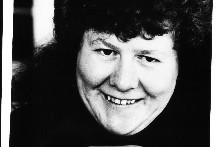"I used to read 50 minutes a day. Now I read maybe 120," says David, who just finished third grade in Osceola, Wis. "I don't know why I read more now. I guess I've just gotten in the habit of reading two hours a night, sitting in bed, curled up in a ball, reading with the Kindle light on."
Just in time for summer vacation, digital reading devices have begun trickling down to kids.
Or at least, more parents are now saying "maybe."
(Which we all know usually means "yes.")
For Mary Knox, the tipping point was when her employer, the St. Paul Public Library, began loaning e-books two months ago. She figured it was time to finally start using the Nook Color from Barnes & Noble that Grandma had given her 8-year-old son for Christmas.
"My child has never been alive without the Internet. He is a native," says Knox, a library associate in Youth Services at the Central Library. "He will read these things in a different way than I ever have: If he is reading on his Nook Color and comes across a word he doesn't know, he can click on it, and it connects him to a dictionary. He's in the second grade now. I can't imagine what the world will be like by the time
he goes off to college, but as his parent, I consider reading online as part of his digital literacy. It's a tool, and I want him to have as many tools as possible."
When Amazon debuted the Kindle just in time for the holidays in November 2007, it sold out in 5-1/2 hours.
Back then, there weren't many e-books available for kids. That's slowly changing, especially with the recent advent of the Nook Color and its ability to display children's picture books. But some of the most popular series for kids are not currently available as e-books, including "Harry Potter" and "Diary of a Wimpy Kid."
"Parents should look up the big books for kids this summer, the best-sellers on Amazon, as well as any required reading for school, to see which ones are available and on which device," says Eileen Wacker, a children's book author, as well as a mom, who has gone digital.
Wacker, who has four children ages 7 to 13, recommends different devices for different levels of reading.
"I would go for a Kindle for an older child who is reading chapter books with no illustrations," she says. "There are so many more books available, it's easy on the eyes in the sun (it is not backlit like a computer screen), and it's an allowable device in many schools because it's so much like a regular book. The Nook Color is a great option for younger kids.
"But if you have the budget, I'm going to make a big play here and recommend going for the iPad for the family," she says. "It's the most exciting reading device out there. Kids love it, and you can download the Kindle app for iPad. Also, have you heard of something called iTunes? Once Apple decides to start competing with Barnes & Noble and Amazon in terms of selling books, this could be the way to go, especially since Apple makes it so easy to sync everything."
One Minnesota reading specialist says it might not be necessary for families to buy dedicated reading devices (which can range from $99 to $250 or more) to get kids started.
"You may already own what you need. There is not a monolithic approach to reading digitally," says Scott Voss, a reading specialist at Apple Valley High School who has used digital readers in class and is working on a doctorate in reading research with an emphasis on digital research from the University of Minnesota.
"There are e-readers like the Amazon Kindle, the Sony e-reader and the Barnes & Noble Nook, which is a good chunk of the market," says Voss, who is also president-elect of the Minnesota Reading Association. "But my daughter, who is in the second grade, has an iPod touch she uses to download free 'Archie' comics.
There are also ones you can buy for $1.99 to $6.99 a book.
"I ran into a gentleman who reads extensively off his iPod. He downloaded the Stieg Larsson trilogy, 'The Girl with the Dragon Tattoo,' so that's 1,800 pages of text," Voss says. "There are also cellphone novels (a literary genre first developed in Japan), that people download to their phones to read during commutes- - books with content specifically written and designed to be read off a cellphone instead of paper.
"My point this that there is no single format or platform that is universal for reading this way."
Full piece at Twin Cities.com.







 Sarah has been a great support to the industry in her role at CNZ, and was a key driver in gaining government support for the Frankfurt initiative. She has strong knowledge of the industry and is a natural for this position. She will start formally in mid-July but will be doing some time with us before that.
Sarah has been a great support to the industry in her role at CNZ, and was a key driver in gaining government support for the Frankfurt initiative. She has strong knowledge of the industry and is a natural for this position. She will start formally in mid-July but will be doing some time with us before that.



